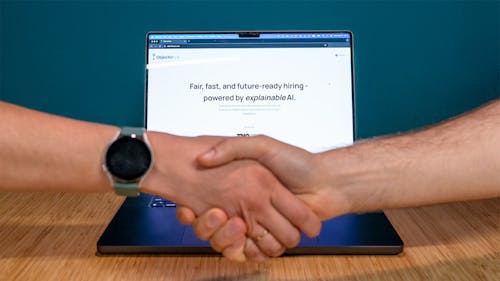AI sparring partner
A smart digital assistant that helps Amsterdam residents find the right support for their healthcare or welfare questions. Because non-medical questions often end up with the GP, we developed an AI sparring partner together with Amsterdam Vitaal & Gezond as a potential solution for offering welfare help that really fits the need.
The Amsterdam Vitaal & Gezond initiative aims to give all Amsterdam residents an equal chance of good health by 2040. This includes appropriate care for every Amsterdam resident. Amsterdam residents know how to find their way to their GP, but research shows that a significant number of the questions that Amsterdam residents bring to their general practitioners can be better solved elsewhere. The pressure on GPs is high and they often do not have enough time to get to the heart of the problem. As a result, a solution is often found in the medical domain, while someone would be better helped by a Buurtteam (Neighbourhood Team), for example. Amsterdam Vitaal & Gezond therefore looked for an innovative solution to relieve the pressure on healthcare institutions and help citizens find the right care.
Understanding care needs and providing appropriate help
The challenge was to understand the care of residents in such a way that they would choose a different offer than an appointment with the GP if it was more appropriate. The solution would have to understand different care needs and provide appropriate help. For example, someone with back pain due to a lack of exercise could be advised to take a daily walk instead of unnecessarily visiting the GP.
Smart and reliable AI assistant
This required advanced technology and user-friendliness. After seeing the AI chatbot on our own Q42 website, Amsterdam Vitaal & Gezond asked us to investigate with them whether a smart and reliable AI assistant could help find the right help. So not a simple chatbot like in an average customer service, but an empathetic conversation partner that could handle complicated conversations. Could such an AI tool work in terms of technology, functionality and tone of voice? And would general practitioners and welfare professionals be enthusiastic about it?
Prototype
To validate this idea, we built a proof-of-concept (PoC) with which people can have a conversation. This prototype uses advanced AI models for question analysis, knowledge storage and text generation to provide accurate and useful answers. The AI assistant is able to understand people's questions on the one hand and to provide relevant help on the other. This help can consist of simple advice to exercise more or to consult a doctor or welfare professional.
User experience is key
The most important thing here was a good user experience. We wanted to prevent the AI assistant from failing and suggesting the wrong help. Because medical questions are asked, empathy is a key part of the conversation. For example, the assistant can indicate that something is a common complaint, such as persistent headaches due to stress. In this way, the AI sparring partner has an educational role that ensures that people with non-medical complaints visit a GP unnecessarily.
Multiple prompts
In order to have the AI sparring partner answer correctly at successive moments in the conversation, we used different prompts. Prompts are mainly good at one task. If we had combined questioning and advising in one prompt, the result would have been less accurate. By defining tasks, we make the conversation as relevant as possible.
- The first prompt is aimed at finding out the cause of the medical or non-medical complaint. Empathy is therefore leading here.
- The second prompt analyses this conversation and checks whether enough questions have been asked: has enough information been gathered to provide appropriate assistance?
- If this is indeed the case, the third prompt ensures that appropriate advice is actually offered and that the user is motivated to do so.
Positive feedback from GPs and care coaches
The technical validation with the prototype has shown that an AI sparring partner uses the right tone of voice. In addition, GPs and welfare professionals became increasingly enthusiastic about using the AI sparring partner during our weekly tests. Their feedback was positive, which is an important step to further develop this prototype, test it further and ultimately implement it in practice.





